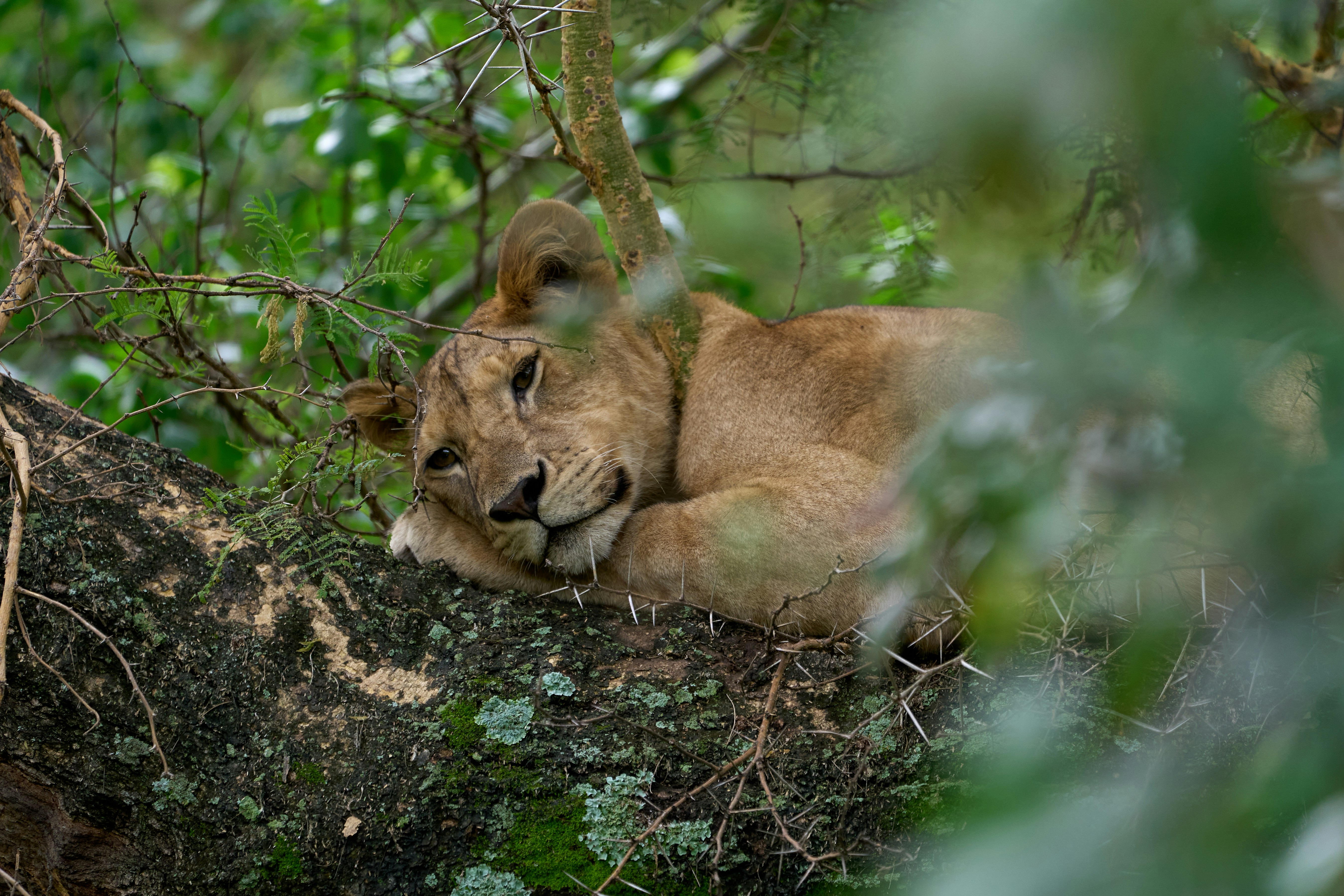
Tanzania Destination Guide
Lake Manyara National Park
A scenic escape to unwind in nature

Tanzania Destination Guide
A scenic escape to unwind in nature
330 km² (130 mi²)
1960 (National Park)
June to October
Nestled beneath the impressive Rift Valley escarpment, Lake Manyara National Park is a lush oasis of forests, floodplains, and serene lake shores. Immortalized by Ernest Hemingway in “Green Hills of Africa,” this park is just a 90-minute drive from Arusha, making it an ideal stop before venturing on to places like the Serengeti or Ngorongoro Crater. Though compact compared to Tanzania’s larger parks, Manyara’s scenic woodlands and vibrant birdlife offer a tranquil start to your safari.
Covering 330 km², Lake Manyara itself takes up most of the park, fed by rivers descending from the Rift Valley and seasonal rains. In recent times, higher water levels have reclaimed old shorelines, leaving forests partially submerged. Visitors often spot baboons, hippos, giraffes, zebras, and warthogs along the shore. Iconic “tree-climbing lions” still roam here, though sightings are less common nowadays. Regardless, Manyara’s pristine forests and lakeside vistas remain a highlight.
Entering through the northern gates, you’ll wind through a lush canopy of mahogany, fig, and baobab trees—home to large troops of olive baboons. The lake’s edges shimmer with flamingos, pelicans, and storks, providing incredible birdwatching opportunities. Meanwhile, open floodplains host wildebeests, buffaloes, and zebras under the striking backdrop of the Rift escarpment. With over 390 bird species recorded, Lake Manyara offers a scenic and photogenic welcome to Tanzania’s northern circuit.
Lake Manyara National Park can be visited year-round, but the dry season (June–October) is ideal for lower water levels and easier wildlife spotting. A short dry period from January to February also works well. Heavy rains from March to May make roads muddier, but the park becomes lush—fantastic for birding and capturing emerald forest backdrops.
June–October (and Jan–Feb)
Best for wildlife visibility
March–May
Lush scenery, great for birders
For those wanting a serene spot to break up their safari en route to the Serengeti or Ngorongoro, Lake Manyara provides a tranquil environment with forest drives, seasonal flamingos, and the famous baboon troops. Hemingway praised the “loveliest” lake in Africa, and it remains a gem for photographers, bird enthusiasts, and travelers seeking a calmer safari pace.
A 4×4 game drive is the classic approach, offering glimpses of forest dwellers, hippo pools, and scenic Rift Valley vantage points. Specialized walking tours or canoe safaris (when water levels permit) may also be available. Don’t miss the chance to capture the park’s stunning contrasts— lush woodlands, pink flamingo lines, and the towering cliffs of the Rift escarpment behind.
The park’s evergreen forests host abundant primates—especially olive baboons—alongside velvet monkeys and blue monkeys. On the floodplains and grasslands, you’ll find buffaloes, zebras, giraffes, and wildebeests. Although tree-climbing lions remain a signature of Manyara, their appearances can be sporadic. Birdlife is exceptional: flamingos, pelicans, storks, and many more gather along the lake’s shifting shorelines.
Only about 126 km (78 mi) from Arusha, Lake Manyara National Park is easily reached via a paved road. Accommodations cluster around Manyara’s entrance and nearby Mto wa Mbu town, from luxury lodges perched on Rift Valley escarpments to modest campsites. Many travelers spend a day or two here before heading to Ngorongoro Crater or the Serengeti. This makes Lake Manyara a refreshing “starter safari” or a calm midpoint break.